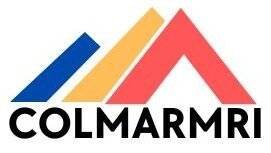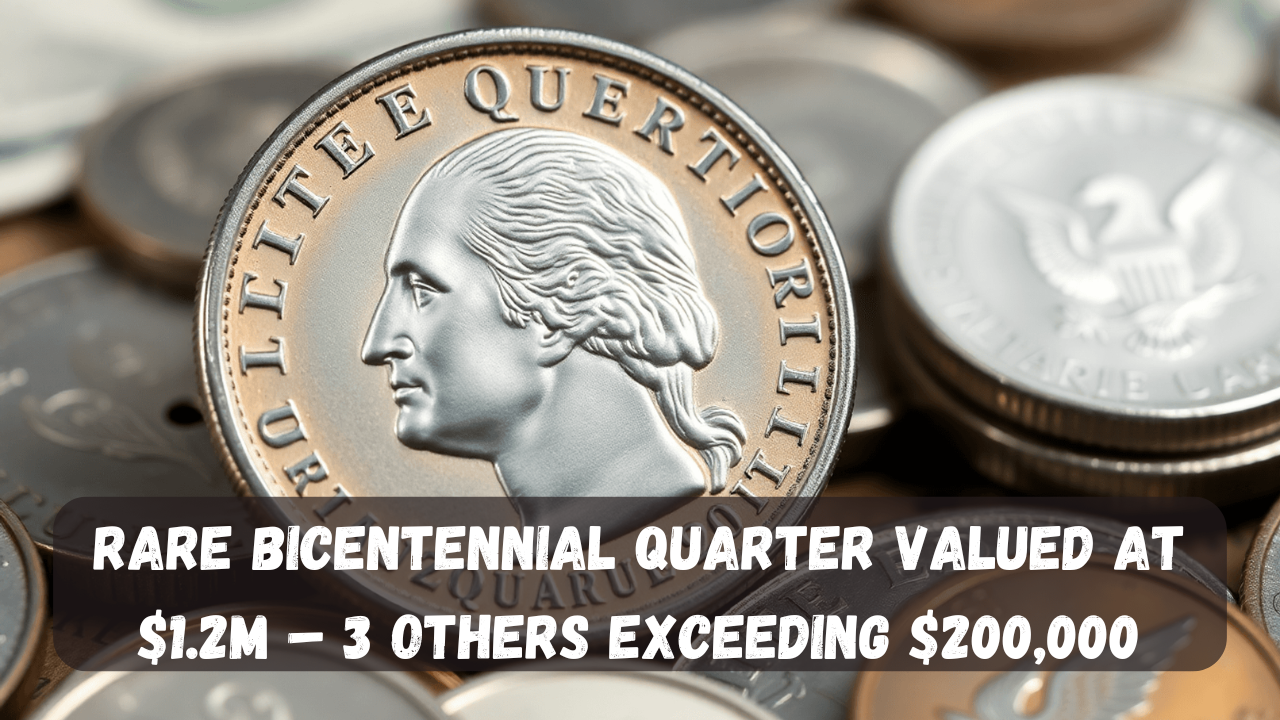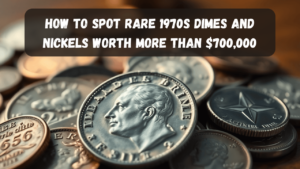Introduction
There are many treasures in the U.S. coin market, and few are as fantastic as the $1.2 million Bicentennial quarter now being pursued by collectors all over the world. This piece will become an iconic testament to the incredible values hidden deep within America’s numismatic heritage.
There have been several quarters that numismatic enthusiasts have identified for their astronomical prices. Amongst those are three examples valued at more than $200,000:
- The rare 1932-D Washington Quarter
- The historic 1870-CC Liberty Seated Quarter
- The sought-after 1901-S Barber Quarter
The Bicentennial Quarter: A Rare Find
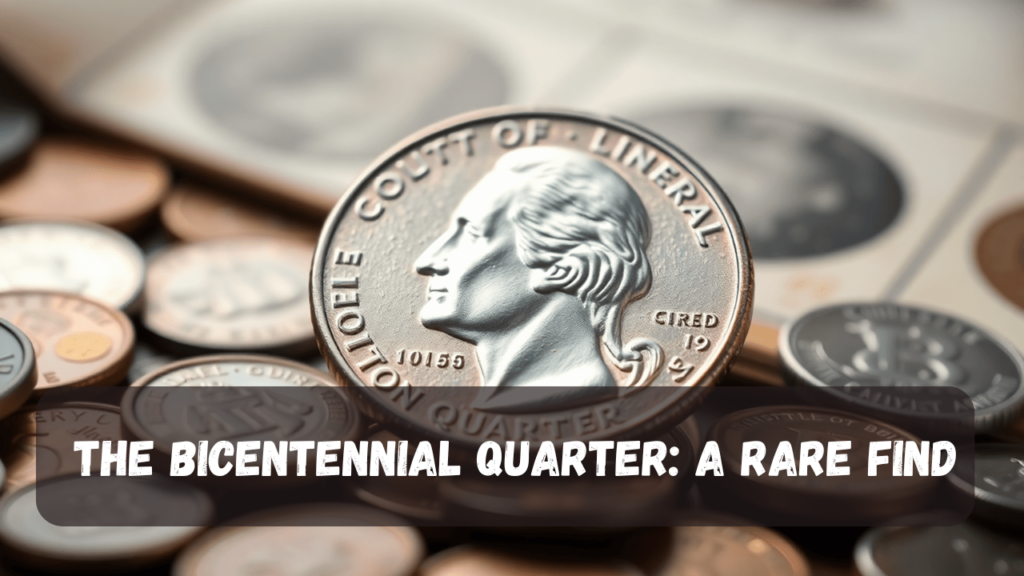
The U.S. Mint produced this 1976 Bicentennial quarter in honor of America’s 200th year of independence. The special edition quarter features a particular design by Jack L. Ahr, displaying a colonial drummer boy on the reverse side, along with a victory torch surrounded by 13 stars – which symbolize the thirteen colonies.
Minting Variants
Two variants were minted in the production process:
- Standard copper-nickel clad circulation quarters
- 40% silver collector versions struck on special planchets
Why Silver Planchet Quarters Are Valuable
The silver planchet quarters are particularly valuable because of the following factors:
- Limited mintage numbers
- More precious metal content
- Better quality strike
- Proof-like finish
The Discovery of an Extremely Rare Coin
An outstanding find was made when experts discovered an extremely rare Bicentennial quarter struck on a 90% silver planchet – truly an error coin in every sense. In addition to this unusual composition, the historical importance and immaculate condition of this coin serve to drive the $1.2 million price tag.
The Significance of the Double Date Feature
The obverse hosts the quarter’s double date feature “1776-1976, thus directly linking America’s founding to its bicentennial celebration.
Market Value of the Bicentennial Quarter
The $1.2 million price tag for this extraordinary Bicentennial quarter comes from several critical factors:
- Pristine MS-68 Grade – This places the coin amongst the highest graded specimens known to exist
- Silver Composition – Struck on an extremely rare 90% silver planchet rather than the standard copper-nickel
- Strike Quality – Outstanding strike details
- Historical Documentation – Full authentication and provenance
Recent auction sales indicate:
- Equivalency grade Bicentennial quarters at $800,000-$900,000
- 15-20% annual steady appreciation in price
- International demand
The market position for the coin remains strong, based on its unique combination of historical significance, rarity, and exceptional preservation. Private collectors and institutional buyers continue to bid against each other for top-grade examples, driving values in the specialized numismatic marketplace ever higher.
Other Valuable Quarters Worth Mentioning
The rare quarters market has within it numerous unique specimens that command staggering prices. Each one of them represents a significant point in American numismatic history, telling a story of uniqueness and storied historical prevalence.
1. The 1932-D Washington Quarter
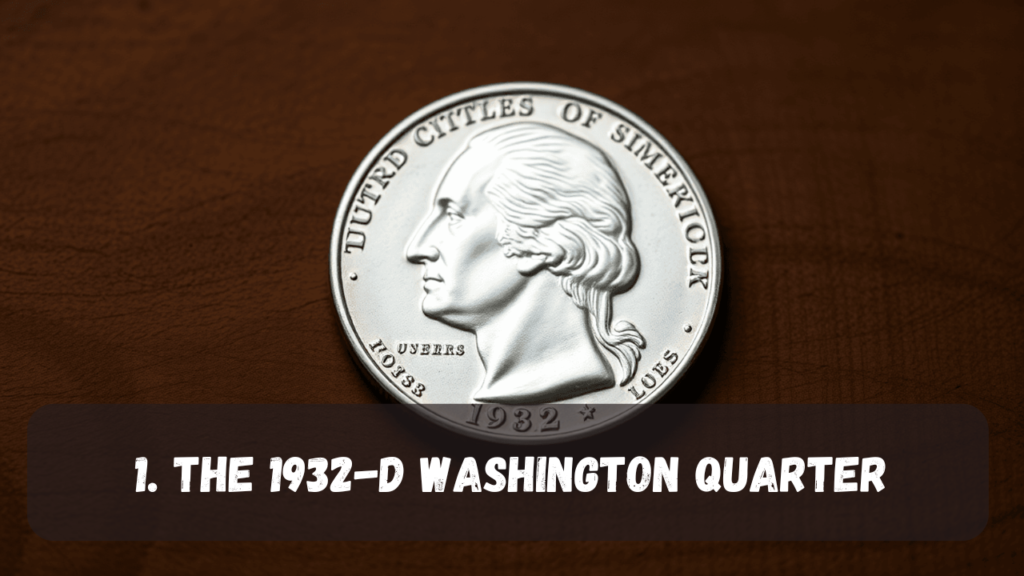
Being one of the most excellent examples of the scarcity principle, the 1932-D Washington Quarter boasts an extremely low mintage figure of only 436,800 pieces produced at the Denver Mint. Key characteristics features of this coin are:
- Reverse side Mint mark is located below the wreath
- Strike characteristics like those of the Denver Mint
- Original silver composition: 90% silver and 10% copper.
Its significance is the mint mark, which plays a very important role in coin value. A “D” represents an origin from the Denver Mint and distinguishes this product from mints in Philadelphia and San Francisco, which would produce the same year. The particular mint mark, together with the fact that it is the first year of the Washington quarter series, contributes to extraordinary collector demand for the piece.
The coin’s importance is reflected in the following market values:
- MS-65 $200,000+
- MS-66 $250,000+
- MS-67 $300,000+
High-grade specimens remain extremely rare, with survival rates very low. Professionals estimate that less than 100 exist in original mint state, and high-grade specimens are becoming scarce. Recent auction results indicate that prices for specimens maintain steady increases, especially in those with original luster and minimal contact marks.
2. The 1870-CC Liberty Seated Quarter
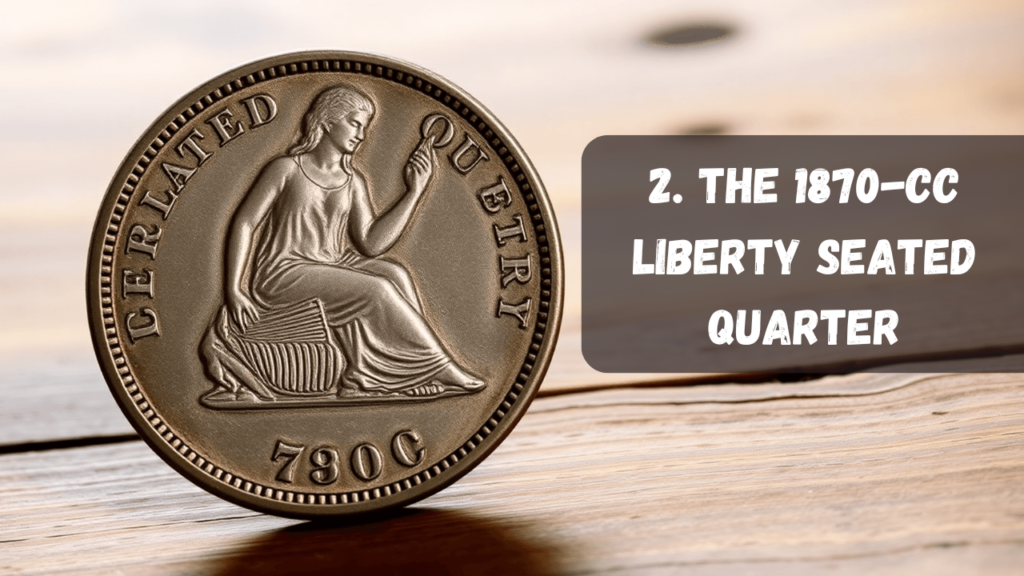
The Carson City Mint was formed in 1870 and delivered its first Liberty Seated Quarter in the mint’s first year. Only 8,340 coins were produced, so the 1870-CC quarter is one of the rarest coins in American coin collecting.
Valuation based on condition
The value of this rare quarter varies greatly depending on its condition:
- Worn Examples (G-4): $20,000-$25,000
- Fine Condition: $45,000-$55,000
- Mint State: $200,000+
Historical significance and collector appeal
Collectors regard these quarters highly for the historical significance. They were the first issue from the Carson City Mint, which itself was a new mint. The “CC” mint on the reverse adds even greater value to the coin, and in its collection, no serious collector would miss a specimen of this quarter.
3. The 1901-S Barber Quarter
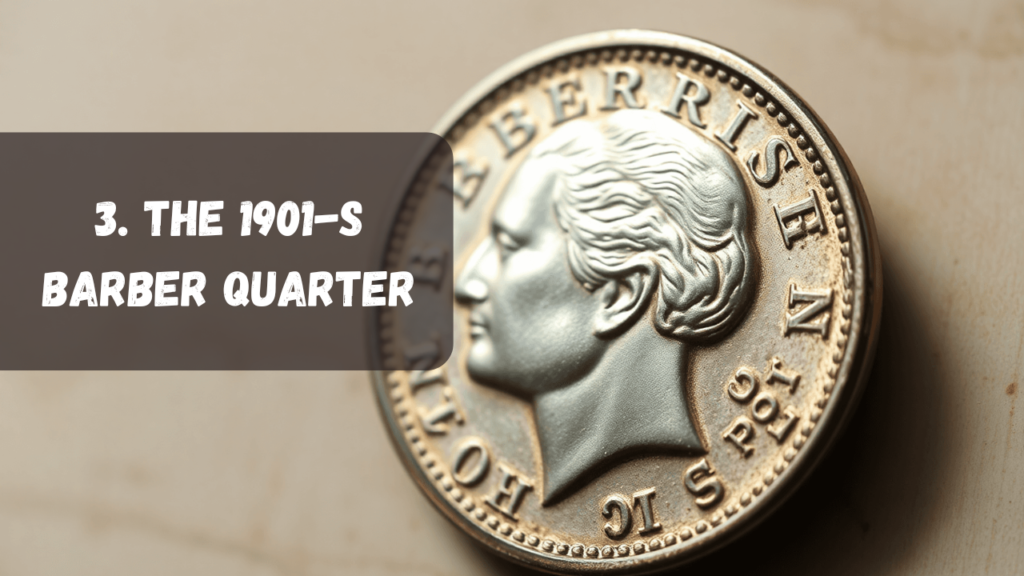
In American history, the 1901-S Barber Quarter is significant because it represents the importance of the San Francisco Mint as a source for currency. Only 72,664 of these quarters were produced, making it one of the rarest coins in the series of Barbers. This quarter became highly sought after by collectors since it was only produced in small numbers at the San Francisco Mint.
The value of 1901-S quarters varies greatly depending on its condition:
- Good-4 Grade: $6,000-$7,500
- Fine-12 Grade: $15,000-$17,500
- MS-65 Grade: $200,000+
Understanding Factors That Affect Coin Value
Minting Errors
Minting mistakes produce characteristic features that the highly enhanced price of a particular coin. These include the following:
- Double impression
- Impression that not almost entirely centered
- Die cracks
- Usage of wrong planchet
Collector Preferences
For collectors, minimal marks of handling and strong eye appeal are preferred characteristics. Original surfaces, especially on older coins, bring a premium price. Toning effects coin value – natural rainbow colours are usually enhancing, but artificial toning reduces the coin’s worth.
Expert Tip
Store your coins properly in their holders and handle them by their edges to preserve both the coins’ condition and their value.
Identifying & Authenticating Rare Coins
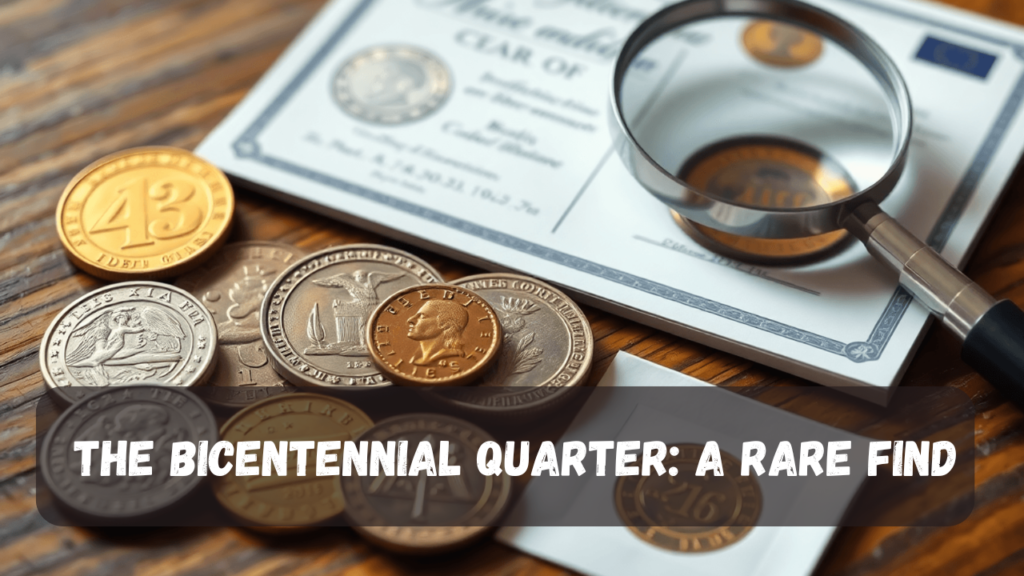
Identifying the key quarters entails paying attention to details and features. Look for these criteria below:
- Date and Mint Mark: Look at the face of the coin to spot the date. Look for mint marks, D, S, or CC that appear under the design
- Surface Details: Look at the coin surface using a magnifying glass (10x) for:
- Original mint luster
- Quality of the strike
- Cleaning and/or wear signs
- Edge Analysis: Run your finger along the edge of the coin to feel for any anomalies
Authentication Red Flags:
- Abnormal weight differences
- Magnetic condition (legitimate silver quarters are not magnetic)
- Fonts or spacing vary
- Appearance of artificial toning
Conclusion: Exploring Opportunities in Rare Quarters Collecting
Rarities of Quarters Excitement for seasoned collectors and newcomers alike, rare quarters hold opportunities beyond reality. One case in point is the truly exceptional $1.2M Bicentennial Quarter, whose value is thought to be hidden within its small piece of history. Pocket change or a family collection may hold treasure – start with mint marks, errors, and characteristics that make your quarters unique.
Action Steps
- Research coin grading standards
- Join local numismatic societies
- Attend coin shows and auctions
- Establish ties with good dealers
The search for rare quarters is a perfect blend of history and investment. Each coin has a different story, and it will be surprising to know that your next quarter could be worth much more than 25 cents.
FAQs
What is the value of the rare Bicentennial quarter?
This rare Bicentennial quarter is valued at $1.2 million, which definitely places it among the most sought after of the rare quarters in the U.S. coin market.
What are some other valuable quarters besides the Bicentennial quarter?
Besides the Bicentennial quarter, there are other high-value quarters such as the 1932-D Washington quarter, 1870-CC Liberty Seated quarter, and the 1901-S Barber quarter, all of which are worth over $200,000 in the market.
What factors influence the valuation of the Bicentennial quarter?
Amongst other factors, the Bicentennial quarter’s rarity, condition, market demand, and historical significance pertaining to the process of minting it lead to its $1.2 million valuation.
